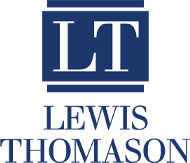Lewis Thomason lawyers Emily Mack, Claire Thomas, and Dale Bay took “no prisoners” with their recent victory in the United States District Court for the Middle District of Tennessee!
The lawsuit alleges that the plaintiff, a pretrial detainee, was subjected to unlawful conditions during a transport. Specifically, Plaintiff complained that the company’s policies, practices, or customs regarding the transportation of prisoners violated the rights of Plaintiff, and each of those similarly situated under the Fourth, Eighth and Fourteenth Amendments, to be free from unlawful conditions of confinement, the use of excessive force, and cruel and unusual punishment.
Last December, Plaintiff moved to certify a class containing “All inmates including, without limitation, adults and juveniles, males and females, pretrial detainees, sentenced prisoners, state mental hospital inmates, and immigration detainees who were transported on behalf of local or state governments, or the federal government, since September 30, 2012, retrained for more than 48 continuous hours.” In support of its motion, the plaintiff presented affidavits averring that the class, from a conservative statistical analysis, consisted of “at least 866 members,” 53 of which had already been identified. In reality, the class could have included thousands of prisoners. The discovery and litigation nightmare was perceived by the client, and a close watch was kept on this matter as an adverse ruling could very well impact other current and future litigation.
The team opposed the Plaintiff’s motion for class certification arguing that the Plaintiff failed to define a certifiable class, failed to satisfy the four Rule 23(a) prerequisites, and could not demonstrate either the predominance: or “superiority” requirement under Rule 23 (b)(3). In a detailed opinion, the District Court agreed and entered an order denying Plaintiff’s motion. The opinion tracked the arguments set forth in the Lewis Thomason team’s memorandum in opposition.
The victory was especially sweet as there is at least one district court in another jurisdiction that granted class certification in a case involving nearly identical facts against a competitor of our client.






